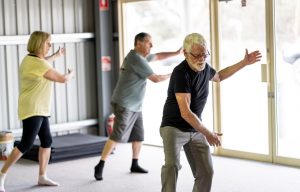 There is no shortage of links between the body and mind. And recent research shows that when your body hurts for too long, it may have a devastating effect on mental health.
There is no shortage of links between the body and mind. And recent research shows that when your body hurts for too long, it may have a devastating effect on mental health.
A recent study found that people experiencing chronic pain are far more likely to have all-cause dementia, Alzheimer’s disease, or a stroke. These findings are independent of a person’s age, health, or socioeconomic status.
Advertisement
The study examined data from the Framingham Heart Study (FHS), a large cohort study that began in 1948. It has more than 15,000 participants, from which researchers drew on just under 2,500 to look at the relationship between chronic pain and mental illness.
Researchers found that people experiencing widespread chronic pain had:
- A 43 percent higher risk for all-cause dementia
- A 47 percent higher risk for Alzheimer’s disease
- A 29 percent higher risk for stroke
There could be several reasons why. Chronic pain can be isolating and limit people’s social connections. It can also contribute to an unhealthy diet because it becomes difficult to acquire nutrition. It may also promote depression.
Pain management, therefore, is key to brain health.
Advertisement
Finding ways to limit and manage pain – using lifestyle, physical techniques, and other methods – might help you regain your physical health and protect your mental health.
Some techniques worth exploring include:
- Hot and cold therapy. Heat helps dilate blood vessels to encourage better blood flow. Cold therapy helps reduce blood flow to limit inflammation.
- Massage
- Physical therapy
- Acupuncture
- Yoga
- Meditation
- Mindfulness
- Tai Chi
- Deep breathing
- Anti-inflammatory diet
These techniques may help manage chronic pain by helping with pain reduction and coping. In turn, it may improve your life and potentially reduce the risk for Alzheimer’s, dementia, and stroke.
